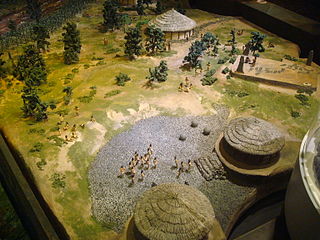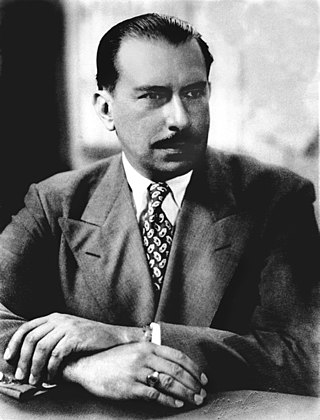| |||||
| Decades: | |||||
|---|---|---|---|---|---|
| See also: | |||||
Events of 1970 in Costa Rica.
| |||||
| Decades: | |||||
|---|---|---|---|---|---|
| See also: | |||||
Events of 1970 in Costa Rica.
1: 1970 Costa Rican general election [1]
American International School of Costa Rica established [2]
Carolina Delgado Ramírez December 12 [3]

The first indigenous peoples of Costa Rica were hunters and gatherers, and when the Spanish conquerors arrived, Costa Rica was divided in two distinct cultural areas due to its geographical location in the Intermediate Area, between Mesoamerican and the Andean cultures, with influences of both cultures.

The politics of Costa Rica take place in a framework of a presidential, representative democratic republic, with a multi-party system. Executive power is exercised by the president and their cabinet, and the President of Costa Rica is both the head of state and head of government. Legislative power is vested in the Legislative Assembly. The president and 57 Legislative Assembly deputies are elected for four-year terms. The judiciary operates independently from the executive and the legislature, but is involved in the political process. Costa Rica has a strong system of constitutional checks and balances. Voting is compulsory, but this is not enforced.

Costa Rica is an active member of the international community and, in 1983, claimed it was for neutrality. Due to certain powerful constituencies favoring its methods, it has a weight in world affairs far beyond its size. The country lobbied aggressively for the establishment of the Office of the United Nations High Commissioner for Human Rights and became the first nation to recognize the jurisdiction of the Inter-American Human Rights Court, based in San José.

San José is the capital and largest city of Costa Rica, and the capital of the province of the same name. It is in the center of the country, in the mid-west of the Central Valley, within San José Canton. San José is Costa Rica's seat of national government, focal point of political and economic activity, and major transportation hub. San José Canton's population was 288,054 in 2011, and San José's municipal land area is 44.2 square kilometers, with an estimated 333,980 residents in 2015. Together with several other cantons of the central valley, including Alajuela, Heredia and Cartago, it forms the country's Greater Metropolitan Area, with an estimated population of over 2 million in 2017. The city is named in honor of Joseph of Nazareth.

José María Figueres Olsen is a Costa Rican businessman and politician, who served as President of Costa Rica from 1994 to 1998. He also ran for president in the 2022 presidential election but was defeated by Rodrigo Chaves.

José María Hipólito Figueres Ferrer served as President of Costa Rica on three occasions: 1948–1949, 1953–1958 and 1970–1974. During his first term in office he abolished the country's army, nationalized its banking sector, and granted women and Afro-Costa Ricans the right to vote, as well as access to Costa Rican nationality to people of African descent.

Teodoro Picado Michalski was the president of Costa Rica for four years.

Sergio Ramírez Mercado is a Nicaraguan writer and intellectual who was a key figure in 1979 revolution, served in the leftist Government Junta of National Reconstruction and as vice president of the country 1985–1990 under the presidency of Daniel Ortega. He has been described as Nicaragua's "best-known living writer". Since the 1990s, he has been involved in the left-wing opposition to the Nicaraguan government, in particular in the Movimiento de Renovación Sandinista. He was exiled from the country in 2021 and stripped of his nationality by the government in 2023.

Óscar Antonio Ramírez Hernández, is a Costa Rican former footballer who played as a midfielder and was most recently the manager of the Costa Rica national team.

Laura Chinchilla Miranda is a Costa Rican political scientist and politician who served as President of Costa Rica from 2010 to 2014. She was one of Óscar Arias Sánchez's two Vice-Presidents and his administration's Minister of Justice. She was the governing PLN candidate for president in the 2010 general election, where she won with 46.76% of the vote on 7 February. She was the eighth woman president of a Latin American country and the first woman to become President of Costa Rica. She was sworn in as President of Costa Rica on 8 May 2010.

Epsy Alejandra Campbell Barr is a Costa Rican politician and economist who served as the Vice-president of Costa Rica from 8 May 2018 to 8 May 2022. She is the first woman of African descent to be vice president in Costa Rica and in Latin America.
The history of the Jews in Costa Rica dates back to the Spanish conquest with the arrival of many Sephardic converts known as Marranos who escaped from the Spanish Inquisition and settled mainly in the city of Cartago and its surroundings. They hid their Jewish past by all means, making even their descendants have no idea of it.

General elections were held in Costa Rica on 7 February 2010. The ruling party before the election, the center-left National Liberation Party, put forward former Vice-President Laura Chinchilla as its presidential candidate, while the libertarian, Movimiento Libertario nominated former legislator Otto Guevara. Opinion polls before voting started consistently put Chinchilla as the front-runner, a trend confirmed in the election-night count, which showed her garnering 46.76% of the vote.

Luis Guillermo Solís Rivera is a Costa Rican politician and educator who was the 47th President of Costa Rica from 2014 to 2018. He is a member of the Citizens' Action Party (PAC).

Victoria Garrón de Doryan was a Costa Rican educator and writer. Most known for serving as Second Vice President of Costa Rica from 1986 to 1990. She was the first woman to hold the post and during her tenure was acting president of the country over a dozen times. As a writer, she produced numerous biographies of historical Costa Ricans, as well as poetry.
Events in the year 2020 in Costa Rica.

From January 1822 to July 1823, the Captaincy General of Guatemala, a former Spanish colony, was controlled by the First Mexican Empire, and briefly, the Supreme Executive Power—the provisional government that succeeded imperial rule. The captaincy general consisted of the provinces of Chiapas, Costa Rica, El Salvador, Guatemala, Honduras, and Nicaragua—the six southernmost provinces of the Mexican Empire. The incorporation of Central America brought Mexico to the height of its territorial extent.
Events in the year 2022 in Costa Rica.
Thelma Curling Rodríguez is a jurist and politician from Costa Rica. She is a defender of women's rights and was the first woman of Afro-Costa Rican descent to become a member of the Parliament of Costa Rica.

Carolina Delgado Ramírez is a Costa Rican politician serving in the Legislative Assembly of Costa Rica.